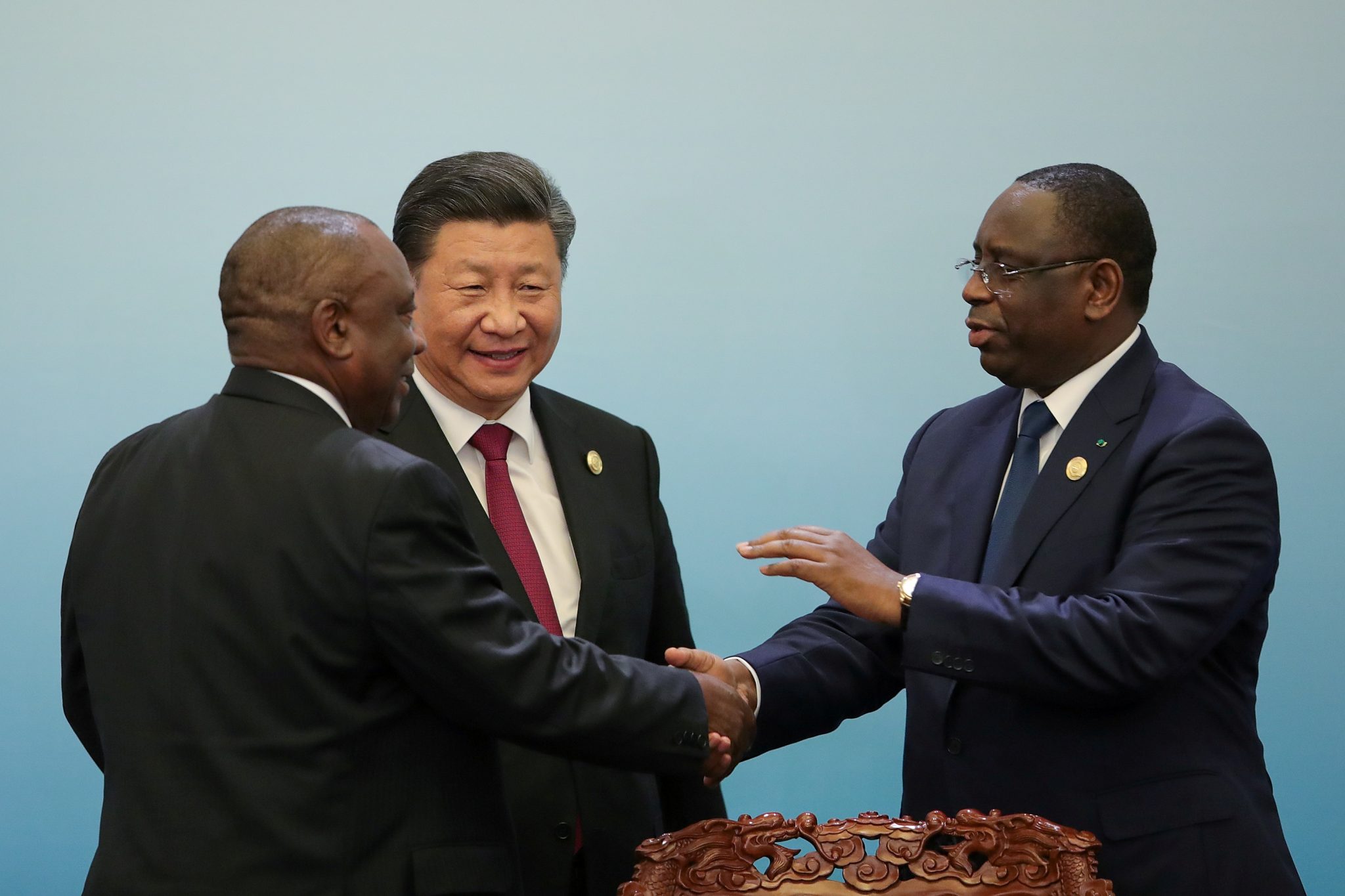
African nations may face growing pressure amid escalating global tensions, following a stark warning from China linked to its intensifying tariff dispute with the United States.
- China warns of retaliation against countries signing trade agreements with U.S. at its expense
- African nations face pressure as they weigh benefits of diversifying trade partnerships against risk of straining ties with Beijing
- President Trump accuses China of taking advantage of U.S. trade policies and attempts to pressure Beijing into a more equitable trading framework
African nations are at crossroads following China’s threat to retaliate against any country that signs trade agreements with the United States “at the expense of China’s interests,” signaling a potentially tougher stance in its global economic diplomacy.
This warning comes in the context of a renewed trade war between the two global powers.
According to the Financial Times, China’s Ministry of Commerce issued the threat in response to reports that U.S. President Donald Trump’s administration intends to leverage trade talks with various countries to diplomatically and economically isolate Beijing.
DON’T MISS THIS: Nigerian oil finds new buyer as Turkey’s largest refinery places fresh order
The ministry urged other nations to reject what it described as “unilateral bullying” by Washington and instead stand in solidarity with China.
“China firmly opposes any party reaching a deal at the expense of China’s interests,” the ministry said on Monday. “If this happens, China will never accept it and will resolutely take countermeasures in a reciprocal manner.” the statement noted.

This development puts African countries in a delicate position as they weigh the benefits of diversifying trade partnerships against the risk of straining ties with Beijing—a long-standing economic partner.
With both superpowers vying for influence, Africa finds itself once again at the center of a global power struggle.
Trump’s fierce position with China
President Trump has recently intensified the heat of his trade war with China, accusing Beijing of failing to reciprocate in the ongoing tariff exchanges between both countries.
According to Trump, China has consistently taken advantage of U.S. trade policies while refusing to offer fair or balanced terms in return.
He described China as a “manipulative and ungrateful trading partner,” accusing it of exploiting global trade systems, undermining American industries, and using economic leverage to influence vulnerable nations.
Trump’s renewed stance comes amid a broader geopolitical push to curb China’s influence, especially in key regions like Africa, Southeast Asia, and Latin America.
His proposed tariff hikes are aimed at pressuring Beijing into a more equitable trading framework—though critics argue the escalating tension could trigger global economic disruptions.
African leaders at a crossroads
African nations have found themselves entangled in the renewed trade war between the U.S. and China, following Washington’s tariff announcement on “Liberation Day.”
The tariffs hit African countries hard, ranging from 10% for nations like Kenya, Ethiopia, and Ghana, to to 31% for South Africa and 50% for Lesotho. In response, some countries, including Lesotho and Zimbabwe, have welcomed opportunities for trade talks with the U.S. to mitigate the fallout.
Facing debt, inflation, and post-pandemic recovery, many African governments see American offers as a chance to diversify trade and reduce dependence on China.
Trump-era tariffs have cast doubt on the future of one major policy that benefited African nations, the AGOA Trade Act, which granted duty-free access to sub-Saharan exports.
Analysts are unsure if it would be restored under Trump’s administration.
However, Beijing’s warning against deals “at the expense of China’s interests” has complicated these decisions.
DON’T MISS THIS: Top 10 African countries the U.S. could profit most from through increased tariffs
China remains Africa’s largest bilateral trading partner, accounting for 20% of the region’s exports and 16% of its imports. Trade between the two hit a record $282 billion in 2023, mostly in raw materials and manufactured goods.
Any Chinese retaliation—such as cutting investments or delaying projects—would significantly impact African economies.
Caught between two superpowers, Africa must now navigate a delicate balancing act, weighing the potential benefits of U.S. engagement against the risks of alienating Beijing.
The choices made in the coming months could reshape the continent’s economic and geopolitical future.












